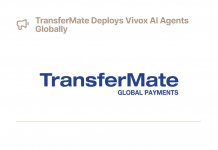Banking as a Service (BaaS) has been celebrated as a significant catalyst within the European FinTech industry, driving its influence on a global scale. Napier AI, which offers a financial crime compliance solution, recently explored why a risk-based compliance approach is vital for BaaS.
BaaS is an innovative approach, which separates technological solutions from traditional banking services, and has been crucial in addressing regulatory goals that aim to enhance consumer choices in financial services, Napier AI explained.
However, as the prominence of BaaS grows, so does the scrutiny from regulators, particularly concerning financial crime compliance. Initially marked by a culture of rapid innovation and development, BaaS providers are now urged to scale their anti-money laundering (AML) strategies in line with their expanding user bases, ensuring compliance is integrated from the onset.
BaaS operates under a model of embedded finance, where licensed banks integrate their digital banking services into other businesses via APIs. This model, also known as embedded banking, not only accelerates the introduction of new digital banking products but also allows non-financial businesses to incorporate financial services into their offerings.
Despite the benefits, the implementation of AML measures often remains secondary for many providers. Established financial institutions like Goldman Sachs Developer and BBVA have been participants in the BaaS landscape for years, but recently, FinTechs and neobanks have taken a leading role. The potential market value of BaaS is expected to reach $25bn by 2026, indicating a significant opportunity for the banking sector.
For consumers, BaaS promises to integrate more beneficial financial services into everyday products. For instance, a customer booking a holiday might be offered a high-interest savings account to fund their travel, secured under the UK’s Financial Services Compensation Scheme (FSCS). This integration not only promotes savings but also builds customer loyalty and opens new revenue streams for businesses like travel agencies, it said. However, the success of such integrations depends on appropriate financial controls to prevent service misuse.
In 2023, banks engaged in FinTech partnerships faced significant regulatory actions, making up 13.5% of U.S. financial penalties. This underscores the necessity for BaaS providers to adopt a risk-based compliance strategy, balancing the need for instant customer experiences with stringent compliance measures. A one-size-fits-all approach to financial crime compliance is insufficient; instead, BaaS providers must tailor their strategies to accommodate the diverse risk profiles, customer bases, and service offerings of their clients. As the FinTech landscape grows, maintaining a comprehensive view of a customer’s financial activities across multiple providers becomes more challenging but essential for compliance and risk management.
For BaaS to thrive under regulatory pressures, prioritizing risk management and compliance is essential. Regulations vary between entities holding e-money versus banking licenses, and adhering to these is critical for BaaS users and providers alike. Implementing robust transaction monitoring, client screening, and customizable KYC practices will be pivotal as regulations and financial crime trends evolve.
Read the full story here.
Keep up with all the latest FinTech news here
Copyright © 2024 FinTech Global











